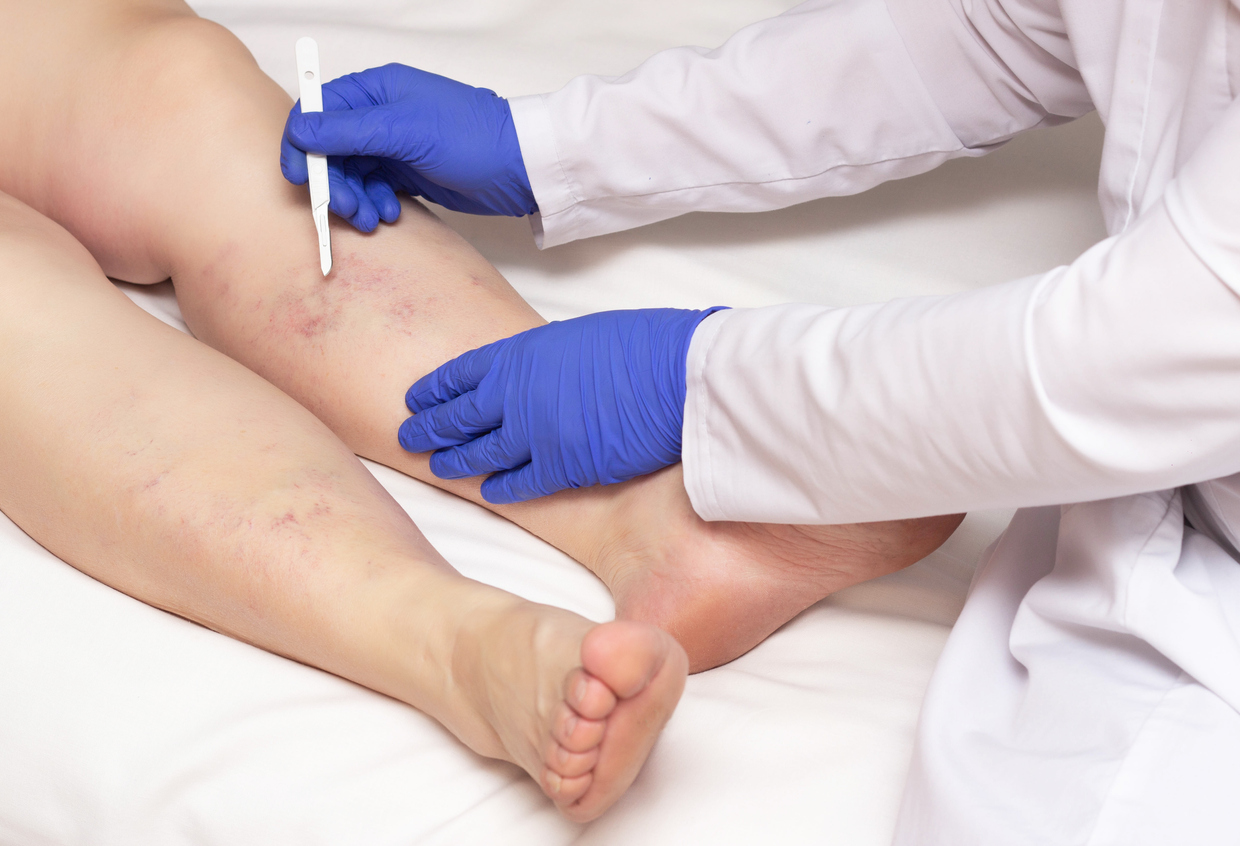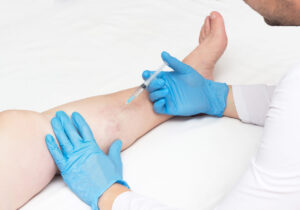Varicose veins are a common vascular condition that affects millions of people worldwide. These twisted, enlarged veins, usually found in the legs, can cause discomfort and, in some cases, more severe health issues. If you’re dealing with varicose veins, you might be wondering, “ what are the treatment options for varicose veins” In this comprehensive guide, we’ll explore various treatment options for varicose veins and introduce you to the specialists who can help alleviate your symptoms.
Understanding Varicose Veins:
Before diving into treatment options, it’s essential to understand what varicose veins are and what causes them. Varicose veins occur when the valves in the veins malfunction, leading to blood pooling and the veins becoming enlarged and twisted. Factors such as genetics, age, and prolonged periods of standing or sitting can contribute to the development of varicose veins.
Common Symptoms Of Varicose Veins:
Varicose veins can manifest with a range of symptoms, including:
- Visible, twisted veins: The most obvious sign is the appearance of swollen and twisted veins, often with a bluish or dark purple hue.
- Aching or throbbing pain: Many individuals with varicose veins experience pain or discomfort, especially after extended periods of standing or sitting.
- Swelling: The affected areas may swell, particularly around the ankles and feet.
- Itching or burning: Some people report sensations of itching or burning around the affected veins.
- Skin changes: Over time, varicose veins can cause changes in the skin, such as discoloration or the development of ulcers.
If you’re experiencing these symptoms, seeking medical advice is crucial to determine the most suitable treatment for your condition.
Treatment Options For Varicose Veins:
Now, let’s explore the various treatment options available for varicose veins:
- Lifestyle Modifications:
- Exercise: Regular physical activity, such as walking and cycling, can improve blood circulation and reduce the severity of varicose veins.
- Elevating Legs: Keeping your legs elevated when resting can help alleviate swelling and discomfort.
- Compression Stockings:
- Compression stockings are specially designed to apply pressure to the legs, promoting better blood flow and reducing the symptoms of varicose veins.
- Sclerotherapy:
- This minimally invasive procedure involves injecting a solution directly into the affected vein, causing it to collapse and eventually fade away.
- Endovenous Laser Ablation (EVLA):
- In this procedure, a laser fiber is inserted into the affected vein, delivering laser energy to seal the vein shut.
- Ambulatory Phlebectomy:
- A surgical technique where small incisions are made to remove the varicose veins from the leg.
- Radiofrequency Ablation (RFA):
- Similar to EVLA, RFA uses radiofrequency energy to heat and seal the affected vein.
What Kind Of Doctor Treats Varicose Veins?
Several medical professionals specialize in the diagnosis and treatment of varicose veins. The type of doctor you consult may depend on the severity of your condition and the recommended treatment plan. Here are some specialists you may encounter:
- Vascular Surgeon:
- Vascular surgeons are experts in treating conditions related to the vascular system, including varicose veins. They can perform surgical procedures such as ambulatory phlebectomy.
- Interventional Radiologist:
- These specialists use imaging techniques to guide minimally invasive procedures, such as sclerotherapy or endovenous laser ablation.
- Phlebologist:
- A phlebologist is a medical professional specifically trained to diagnose and treat vein-related conditions. They may use a combination of non-invasive and minimally invasive techniques.
- Dermatologist:
- Dermatologists may be involved in the treatment of varicose veins, particularly when cosmetic concerns or skin changes are present.
- Vascular Medicine Specialist:
- These doctors focus on the medical management of vascular conditions and may prescribe medications or recommend lifestyle modifications.
Choosing The Right Doctor:
When seeking treatment for varicose veins, it’s essential to choose the right doctor based on your specific needs and the recommended treatment plan. Consider the following factors:
- Specialization: Look for a doctor with expertise in treating varicose veins, such as a vascular surgeon or phlebologist.
- Experience: Choose a healthcare professional with experience in performing the specific procedures recommended for your condition.
- Credentials: Ensure that the doctor is board-certified and has the necessary credentials to practice in their field.
Conclusion:
If you’re dealing with varicose veins, there are various treatment options available, ranging from lifestyle modifications to minimally invasive procedures and surgery. The key is to consult with a qualified healthcare professional who can assess your condition and recommend the most appropriate treatment plan. So, if you find yourself wondering, “What kind of doctor treats varicose veins?” remember that specialists such as vascular surgeons, interventional radiologists, phlebologists, dermatologists, and vascular medicine specialists can all play a role in providing effective care for varicose veins. Don’t hesitate to seek professional help and take the first step towards healthier, pain-free legs.












